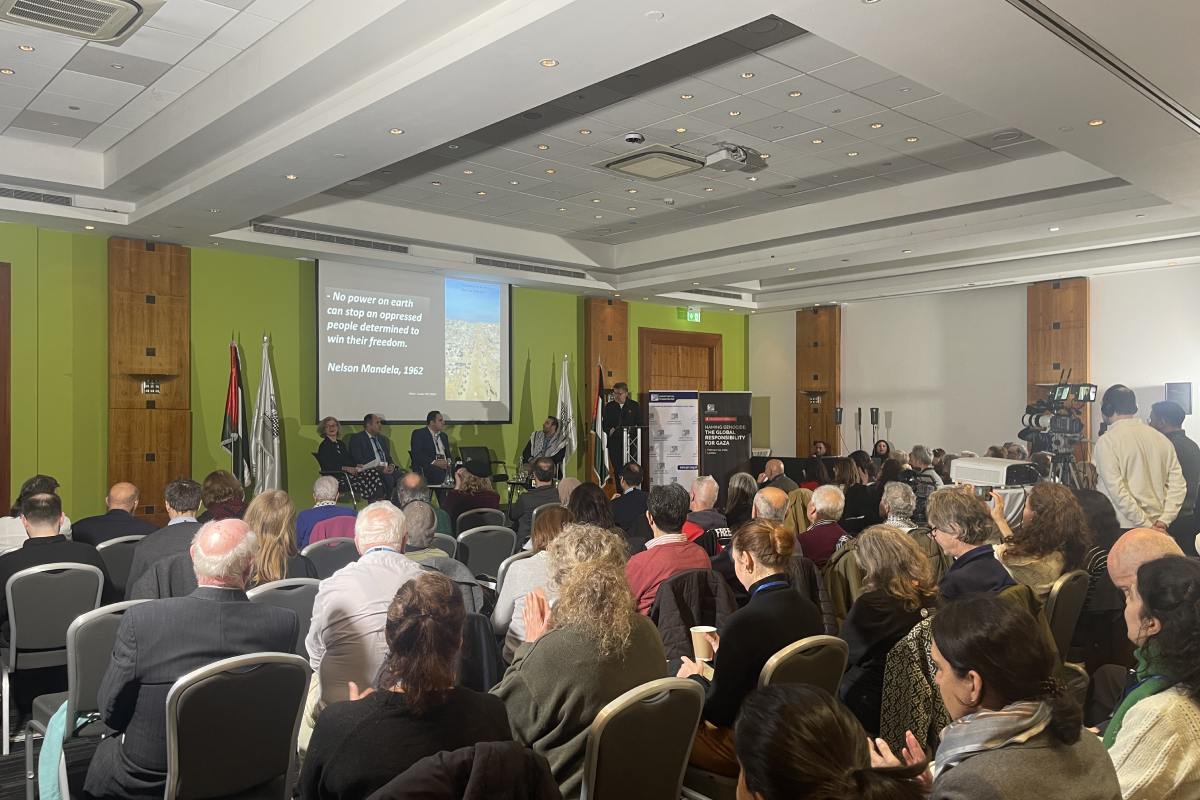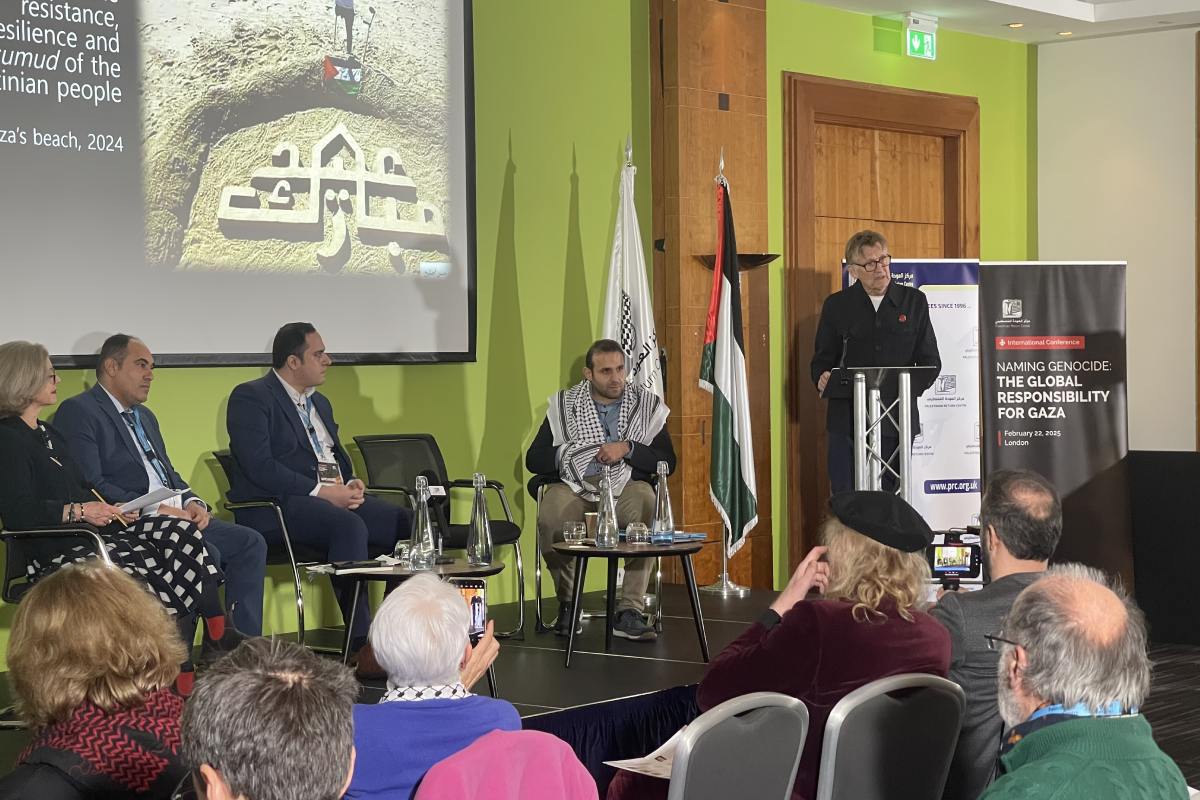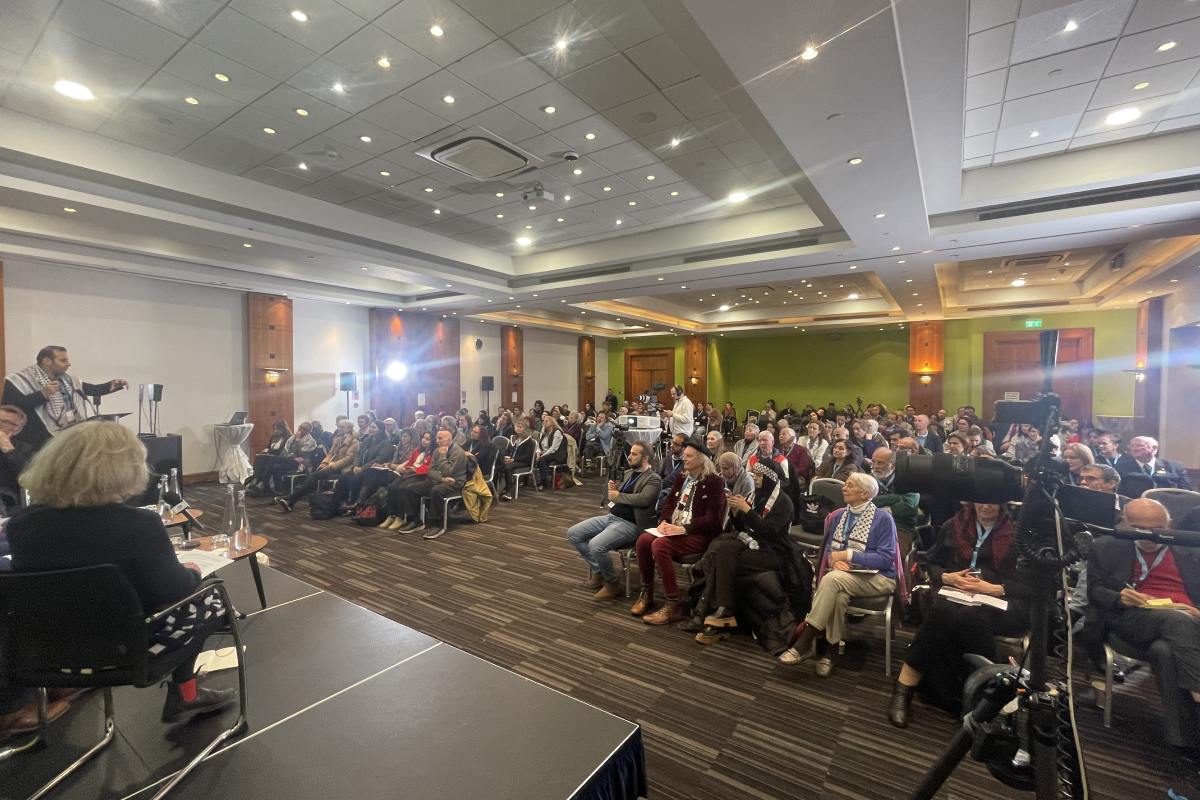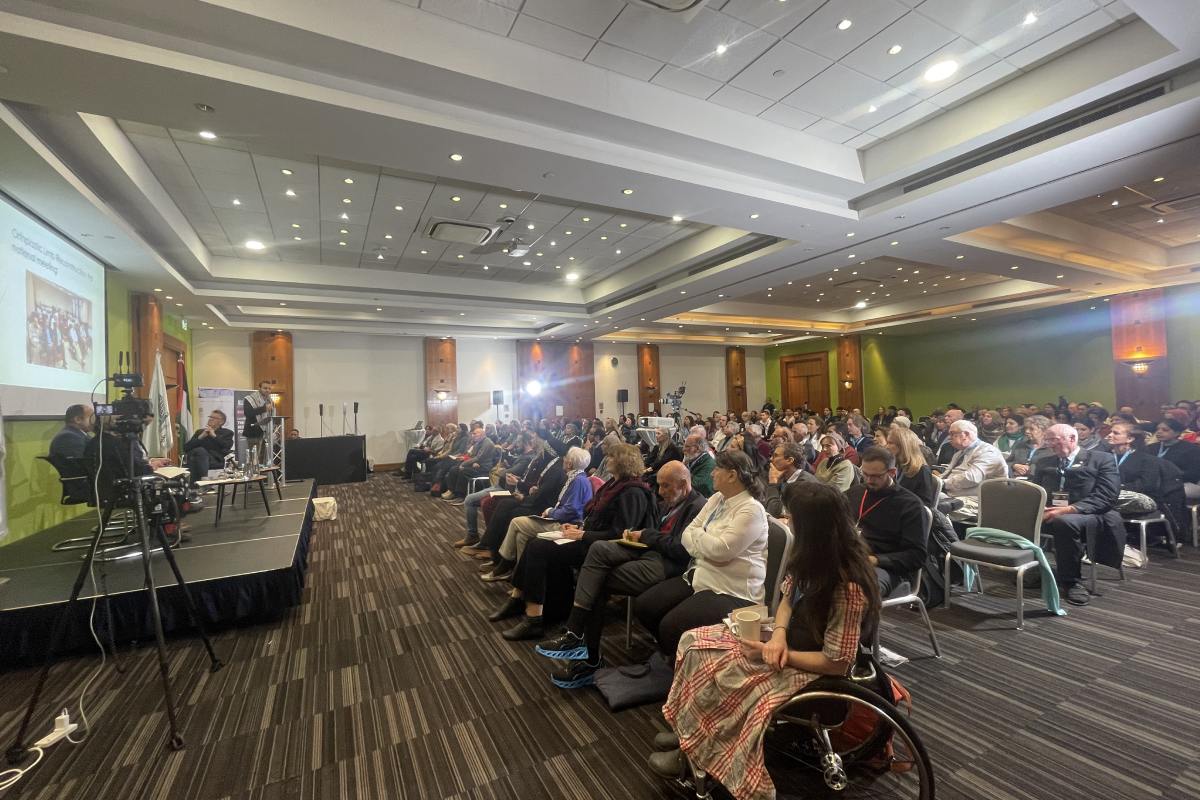Panel 2: Voices from Gaza – Lived Realities and Resilience Amid Genocide

At the Naming Genocide: The Global Responsibility for Gaza conference, the second Panel—titled "Voices from Gaza: Lived Realities and Resilience"—offered a multi-layered exploration of life under siege in Gaza. Chaired by Professor Penny Green, an Australian Professor of Law, the session provided an essential platform for those who have borne witness to the relentless violence and systemic destruction inflicted upon Gaza. With Western journalists barred from entering the territory, the authentic voices of Gazans have become the sole source for understanding the true human cost of this crisis.
The Power of Truth-Telling
Professor Penny Green, Australian Professor of Law, opened the session by emphasizing that this panel is about more than merely reporting news—it is about restoring humanity to the Palestinian narrative. She stressed that with Western journalists barred from entering Gaza, the authentic voices of those living through the siege are indispensable in revealing the true human cost of the genocide. In her remarks, she recognized that the truth-tellers—doctors, teachers, journalists, and ordinary Gazans sharing their lived realities on social media—are the backbone of resistance against an oppressive narrative.
Professor Green also highlighted the immense personal sacrifices made by healthcare professionals under occupation. She noted that the panel is taking place on the very day that Dr. Hussam Abu Safiya, a paediatrician and Director of Kamal Adwan Hospital, has been detained for months in one of Israel's notorious torture jails—a stark reminder of the brutal conditions faced by at least 300 healthcare professionals currently imprisoned. Furthermore, she recalled the horrific case of Dr. Ahmad Bursh, the head of orthopaedics at Gaza Shiffa Hospital, who was kidnapped and raped to death by Israeli security forces in Ofer prison. By mentioning these tragic cases, Professor Green underscored the critical importance of amplifying the voices of those who bear witness to these atrocities, asserting that their courageous testimonies are essential for challenging and ultimately dismantling the distorted narratives perpetuated by Western media.
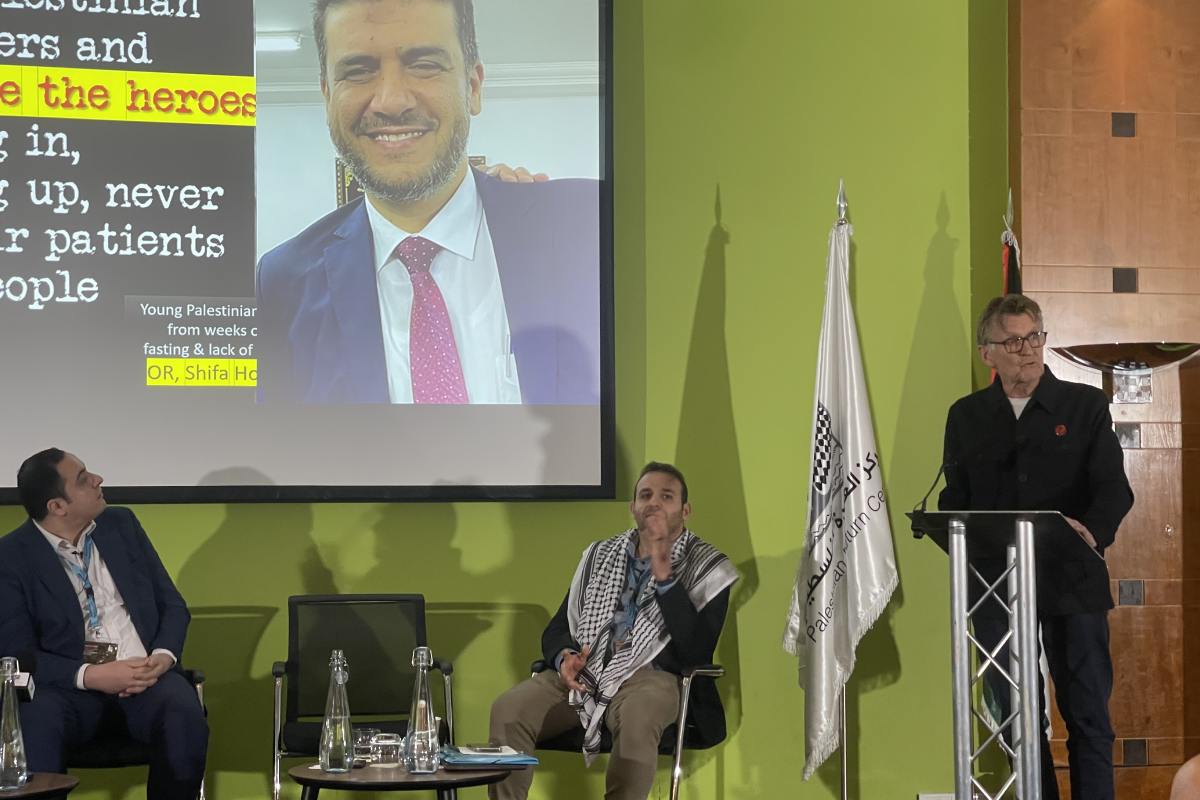
A Call for Resilience and Renewal
Dr. Mads Gilbert, an award-winning Norwegian medical doctor and author, delivered an impassioned address that intertwined personal reflection with a broader call for resilience. Expressing regret at having to be the "white voice" for those who are silenced by the occupation, Dr. Gilbert recounted the historic moment when forcibly displaced Palestinians in northern Gaza began returning home—a powerful symbol of defiance and renewal.
Quoting Nelson Mandela’s timeless assertion that no power can stop an oppressed people determined to reclaim their freedom, he framed the Palestinian struggle as a global beacon against colonialism and oppression. Dr. Gilbert’s narrative, enriched with vivid imagery such as the phoenix rising from ashes and the poignant portrayal of a Palestinian man with an amputated leg, captured the indomitable spirit of Gaza. His reflections not only honoured the courage of the people but also called upon the international community to recognize and support this relentless pursuit of justice.
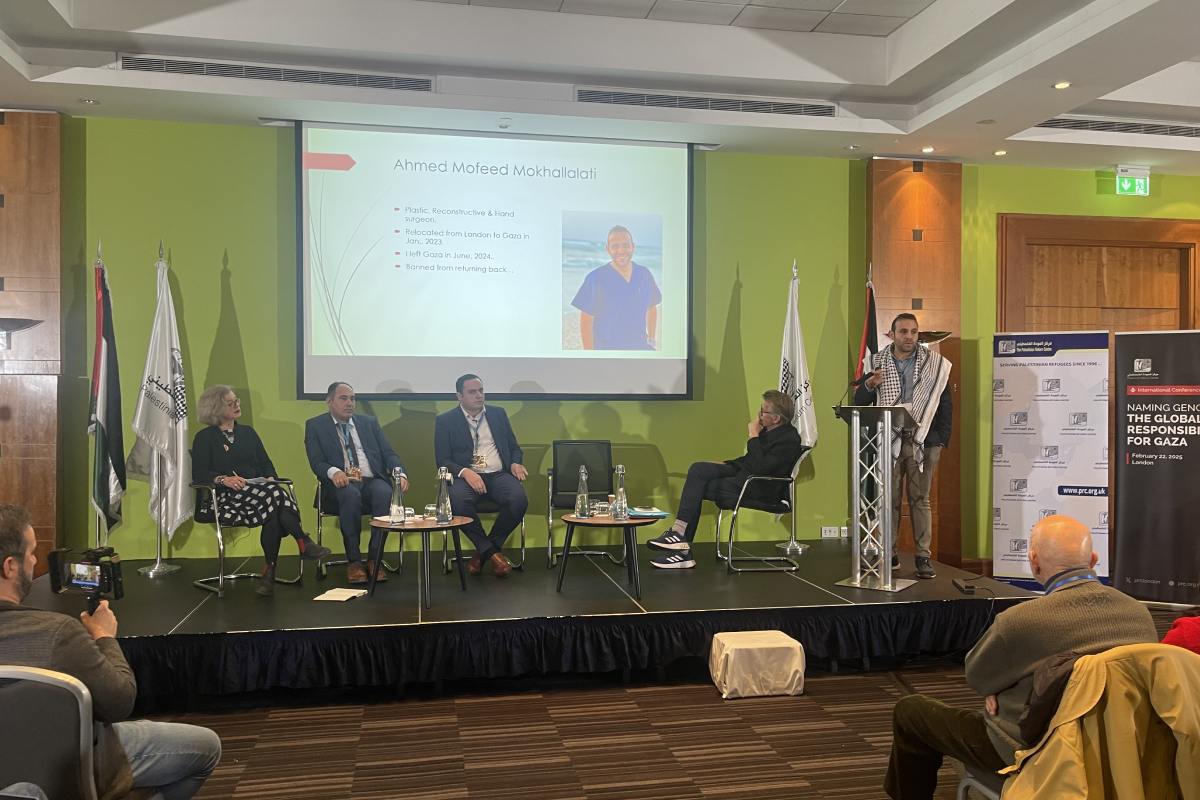
Battling the Collapse of Gaza’s Healthcare
Dr. Ahmed Mukhallalati, Head of Plastic Surgery at Al Shifa Hospital in Gaza and Director of Global MedConnect, provided a stark and visceral account of the catastrophic impact of ongoing violence on Gaza’s healthcare system. With clinical precision and heartfelt emotion, he described the near-total collapse of medical infrastructure—a system once known for its resilience and excellence. Dr. Mukhallalati detailed the relentless assault on hospitals, the severe shortages of essential supplies, and the harrowing experiences of healthcare workers forced to operate under unimaginable conditions.
He recalled the chaos of evacuating patients without ambulances, the deliberate targeting of medical facilities, and the personal toll of witnessing lives lost and families shattered. His testimony underscored that the deliberate destruction of Gaza’s health system is not merely collateral damage but a calculated strategy to undermine the very foundation of Palestinian survival. Through his narrative, he issued a clarion call for immediate international intervention and sustained support to rebuild the healthcare network that is critical to Gaza’s future.
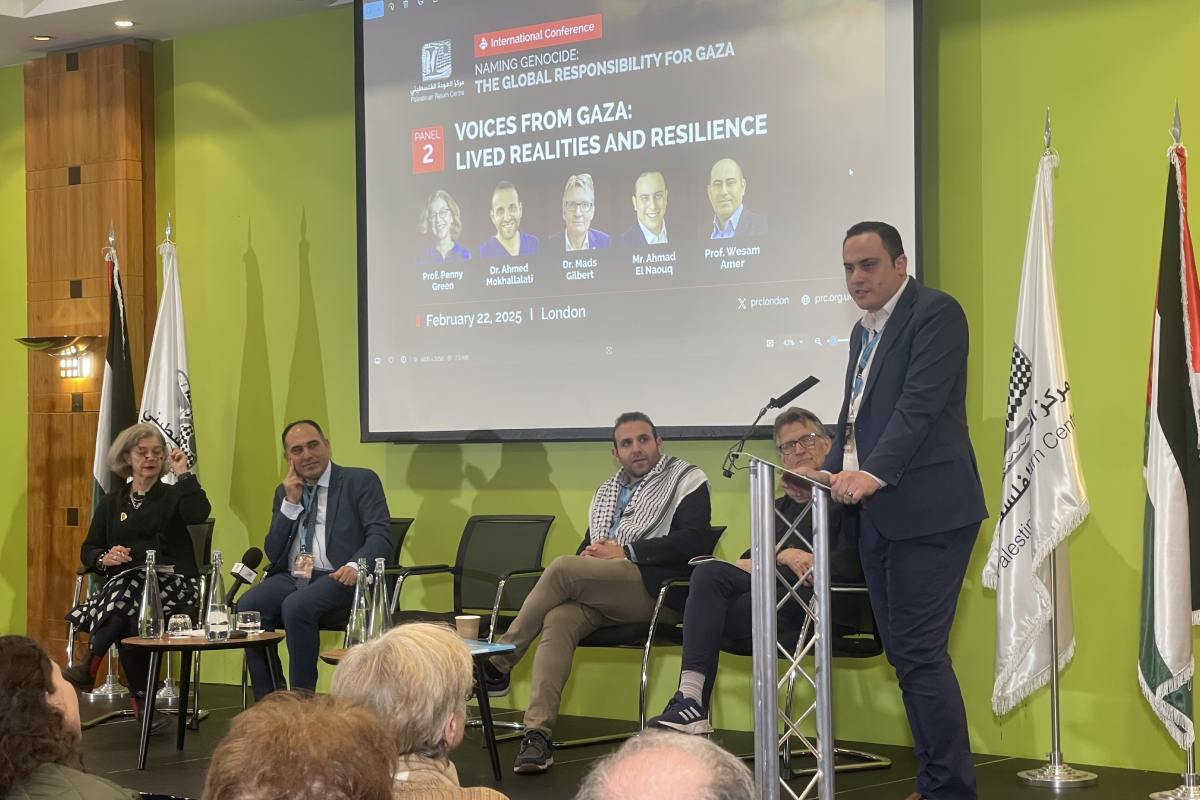
A Personal Testament to Loss and Defiance
UK-based journalist Ahmed Al Naouq, founder of We Are Not Numbers, shared a deeply personal and harrowing narrative that bridged the gap between collective suffering and individual loss. With raw emotion, he recounted the devastation of losing 21 members of his own family—a loss that transforms abstract numbers into a searing human tragedy. Al Naouq’s words resonated as a powerful repudiation of any notion that acts of genocide can yield victory for an oppressor.
He argued forcefully that no matter how many lives are lost, each death exposes the brutality of the occupation and reinforces the unbreakable spirit of the Palestinian people. He challenged the prevailing narratives that attempt to downplay the horror of the genocide by contrasting the value placed on Western victims with the systemic dehumanisation of Palestinians. His impassioned plea was a testament to the resilience of those who refuse to be defeated, and a rallying cry for global solidarity in the face of relentless injustice.
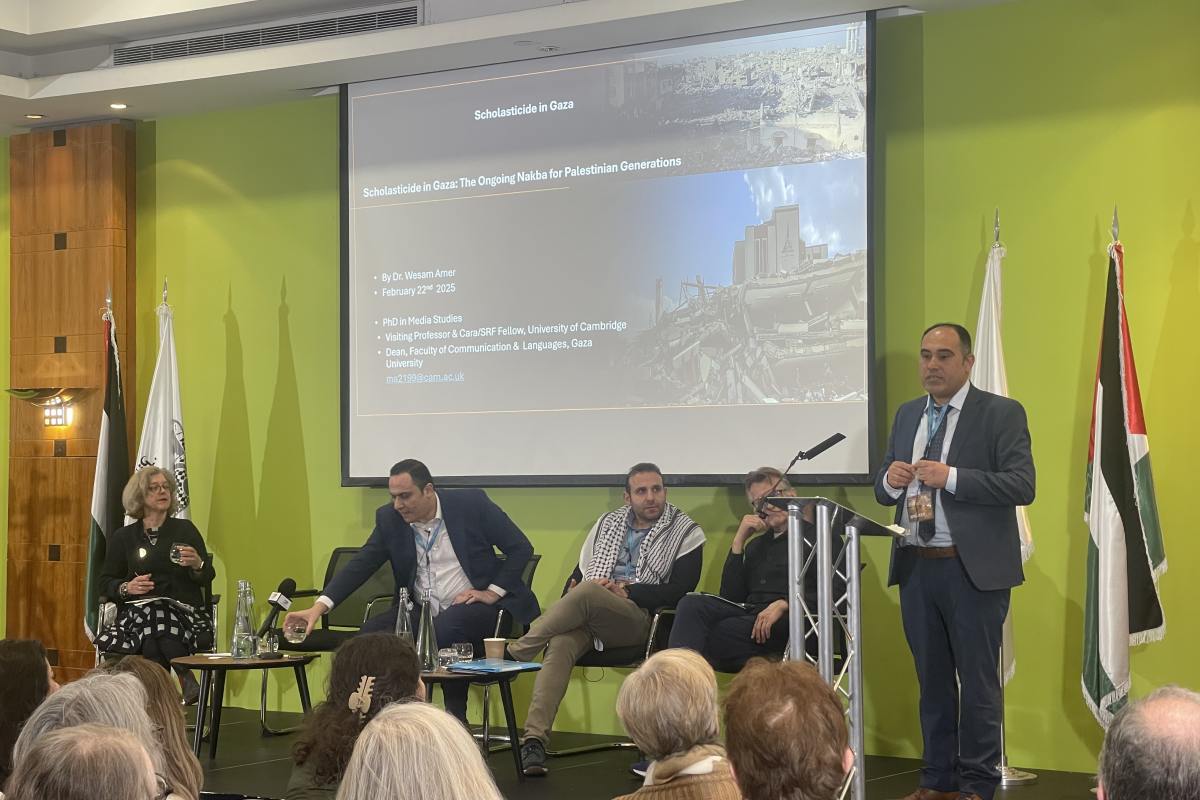
Reclaiming the Narrative from Western Media
Concluding the panel, Professor Wesam Amer from the University of Cambridge offered a critical reflection on how Western media fails to capture the true essence of life in Gaza. As a media researcher and political communication specialist, he argued that conventional labels like “genocide,” “catastrophe,” or “conflict” are woefully inadequate to describe the lived reality of survival amid unceasing bombardment and displacement.
Professor Amer detailed his personal anxieties about the safety of his family and colleagues still residing in Gaza, emphasizing that the experience of forced displacement, the collapse of educational institutions, and the systematic destruction of community infrastructure are not mere statistics—they are everyday tragedies with countless consequences. He explained the deliberate “Scholasticide” inflicted on Gaza’s universities and schools, where the targeted destruction of Palestinian intellectual and cultural institutions aims to erase the very foundations of resilience. Yet, despite these hardships, he highlighted stories of enduring resilience: communities finding innovative ways to maintain education, families clinging to hope, and Individuals, even in exile, continue to document and confront the atrocities of the occupation in various ways.
His analysis not only critiqued the skewed narratives perpetuated by Western media but also called for a radical transformation in how the international community understands and responds to the crisis in Gaza.
A Resounding Call for Global Solidarity
Collectively, the speakers of the second panel painted a multifaceted portrait of life under siege in Gaza. Their insights—ranging from the harrowing collapse of healthcare and education to personal testimonies of loss and defiant resilience—underscore the urgent need for global solidarity. The session not only documented the devastating realities on the ground but also served as an impassioned appeal to rehumanize the Palestinian experience, challenge biased narratives, and mobilize international support to rebuild a society under attack. In their voices, the call to action is clear: the world must recognize the ongoing genocide in Gaza and work collectively to restore dignity, justice, and hope for the Palestinian people.
22-2-2025
